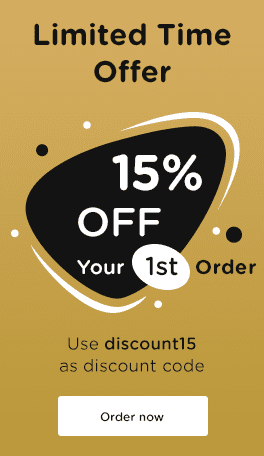
7 Ways Of How To Prepare For Management Essay
Marketers are constantly looking for a formula for an effective text. However, as it often happens, the solution lies in the most prominent place.
Perhaps it is not so easy to find a marketing specialist who is not familiar with the management essay writing rules. Nevertheless, it is possible to learn how to create even better texts. Here are some recommendations on how to do this.
Definition Of Management Essay
What is an effective text? This text helps in achieving the goal. There are many different management essay topics. You need to decide what exactly you want to achieve. Do you need to bring information to the reader in order to change his mind or to get specific actions from the addressee? Formulate the goal as clearly as possible and keep it in your head all the time.
Rules of Creating an Essay on Management and Leadership
Determine The Target Audience
When the question for the purpose is solved, it is necessary to make a portrait of the audience, to which you are addressing. And here you need to collect all that you know about future readers:
- Who they are (socio-demographic data, professional affiliation, social status, etc.)
- What they know about your company
- What is important for them, what they are afraid of, what their needs, interests, and problems are.
The more you know your audience, the more likely it is to create an effective text. Keep the image of your reader in front of your eyes and write for him or her. Having made such a portrait, you can go directly to writing the text.
Attract Attention
The most important task of the title or topic of an essay on management skills is to interest somebody. If this task is not accomplished, then the ultimate goal will not be achieved, because the text will not be read.
It is necessary to bypass the filter of selective attention. The human brain is structured in such a way that information “falls down” immediately into the subconscious, from which it cannot return to consciousness at all.
- Write an interesting and vivid title
- Show to whom it is addressed clearly
- Be relevant for the addressee – touch upon some problem which is actual for the him/her (the reader should think “Oh, this is for me!”)
- Intrigue (do not immediately disclose all the secrets)
- Be understandable.
Awaken Interest
All people are a little selfish, so they are interested in reading about themselves. The most common mistake when creating a text is to write only about your company and about your product. To interest your reader, you need to write about him/her, show that you understand his/her needs and want to help; appeal to what is important to your reader, and not for you:
If you give the reader information about what is interesting to him or her, you will get his attention. Therefore, it is important to keep to the topic and speak in essence.
Urge To Action
It is important not only to call for action but also to give all the necessary information for this. You do not have to force the reader to look for something extra – this will greatly reduce the effect of your text.
Simplify The Text
Consider final changes in order to make your text easier to read. If you can simplify something or reduce it – do it. It is important to reduce all secondary facts. For example, it is better to remove unnecessary amplifications. It is desirable to use negations less often and not to allow more than one negative construction in the sentence.
This formula can be applied to any marketing text, and for verification use a checklist:
- Is there a clear goal in the text?
- Is it clear to whom the text is addressed?
- Are the topics or problems relevant to the audience?
- Does the title (subject) speaks about what will be in the text, pushes to reading?
- Is the text written in a language that is understandable to the audience?
- Is there a call to action?
- Are paragraphs short?
Write In Simple Language
People have learned how to avoid the “advertising language.” Instead of following the pattern of the selling text, it is better to write from your heart. Use your everyday style and manner of communication. Be simple and sincere; show the reader that you are the same person as he or she is. Remember, people want to buy things from people, not from faceless companies.
Tell the truth. Talk about the real benefits of your product; show how it solves the problem. Share real stories and cases. However, at any cost, avoid deception. Do not write what you would not be able to say to anyone. Do not use business jargon. In which language does your target audience communicate? What words do these people use to say about their problems or desires? What is their favorite type of information – audio, video or written? Learn this and use a format that makes sense for your audience. Your goal is not to show people how cool you are in your industry. Avoid professional terms. Be clear to your potential customers.
Use More Specifics And Facts
Back up each word with dry data and facts. Do not say about the facts that you cannot confirm. Use numbers and share relevant, specific details, answering the possible questions of people before they have time to ask them. It causes trust and positions your product and business in the eyes of the buyer as reliable.
What is better: a long text or a short one?
In fact, there is no single answer. It all depends on your product, business, and audience. If your potential customers are business people, then you know that they value every minute of their precious time. They do not like multi-page texts, and the only thing they pay attention to are figures, facts, and lists with specific advantages. On the other hand, if you have a complex product that requires a comprehensive description, you can write texts of 2000 words or more.




